Redistricting drama, baffling book ban, and Surfside: revelations, settlement and a Pulitzer
It’s Monday, May 16, and another court has rejected Gov. Ron DeSantis’ redistricting gambit but the governor still has cards to play. And, nearly 11 months after the tragic collapse of Champlain Towers South, the Miami Herald is still on the story — learning new information, and getting recognized for it.
WHAT WE’RE TALKING ABOUT

Photos reveal warning signs at collapsed tower: Less than a month before Champlain Towers South collapsed last June, the building manager noticed a large horizontal crack had formed in the planter on the pool deck. He called the building’s structural engineer, Frank Morabito, to come check it out but the response was too little, too late. Within weeks, the planters and pool deck had crashed down into the underground garage below, sparking a chain reaction that resulted in the collapse of most of the 12-story residential tower, and the death of 98 people.
New photos, some of them filed in the class-action lawsuit on behalf of the victims, show evidence of structural problems and a need for immediate repairs. “The building was talking to Morabito and he wasn’t listening,’’ said Dawn Lehman, professor of engineering at the University of Washington and a consultant on the Herald’s collapse investigation. Six structural engineers who reviewed the photos told the Miami Herald that the dramatic change in the height of the wall near the crack suggested the structural slab below could have been starting to fail.
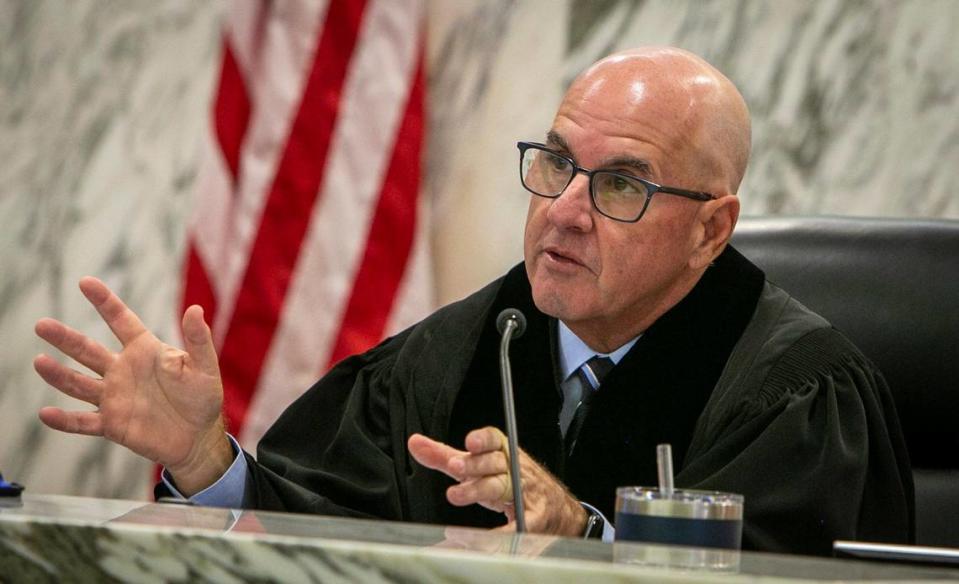
Surfside families reach settlement: These details and others emerged last week as relatives of the victims and survivors of the Surfside condo collapse reached a surprisingly swift resolution to the lawsuit, announcing that more than 20 entities, will pay them nearly $1 billion. The settlement, the second-largest class action settlement in state history, was reached with the insurers of the security company for Champlain South, the developers of the condominium next door, engineers, architects, and a law firm that represented the Champlain South condo association.
Although the agreement effectively closes the litigation phase of the case, still to be decided is the question of how to decide how much each of the family members of the 98 people who died in the collapse will receive.
It will not be an easy task. Still suffering from the wrenching personal loss, families will now have to file claims for loved ones that spell out age, occupation and earnings, among other economic factors, so that a pair of administrators and a judge can put an exact value on each lost life. Some, under an approach that is standard in loss of life settlements, will invariably be “worth” more than others.
Several of the victims’ families told the Herald that the price tag won’t bring them much closure. “It’s not about the money,” said Pablo Langesfeld, the father of Nicole Langesfeld, one of the collapse victims. He said the only way to bring any sort of closure to families like his will be finding out what caused the condo to fall down and for the parties at fault to take responsibility.

Pulitzer awarded for Surfside coverage: Nearly every reporter and editor at the Miami Herald has been involved in the newspaper’s coverage of the stunning, heartbreaking collapse of Champlain Towers South, and for our wide-ranging and vigorous coverage, the Miami Herald has won its 23rd Pulitzer Prize. The top prize in the Breaking News category honors the work of the entire newsroom and especially the 37 journalists who were involved in the early reporting.
Herald journalists reported amid the unique challenges of the pandemic, working from their homes and in the field, without a central newsroom. A flood of information — and misinformation — required Herald journalists to vet sources and question accounts. Yet by 3:21 a.m., the Herald had posted its first, confirmed story of the collapse, noting 99 feared missing. By 6:40 a.m., the Herald had updated its original story more than 40 times.
As state stalls, Miami-Dade makes progress: As the governor and state legislators continued to demonstrate little urgency to revise state regulations over aging condo buildings in the wake of the Champlain Towers collapse, Miami-Dade County moved closer to tightening its rules. Under the proposed county ordinance that advanced last week, buildings would need inspections after 30 years, instead of 40, to obtain a county or city certification. The aim is to prod building owners to start repairs on neglected maintenance a decade sooner than required under current law.
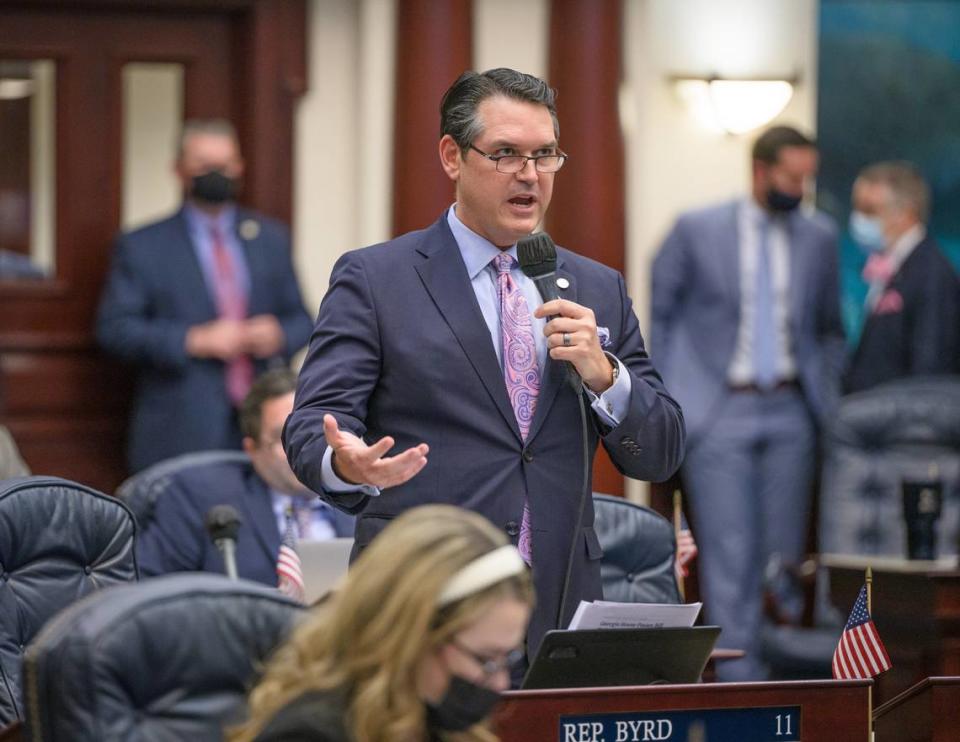
Conservative legislator to be next elections chief: DeSantis on Friday named conservative Rep. Cord Byrd, a Neptune Beach Republican, as Florida’s new secretary of state, overseeing the state’s elections office. Byrd, an attorney, has sponsored some of the most controversial bills in the Legislature in recent years, including 2019 legislation banning so-called “sanctuary cities,” a 2020 bill requiring that some employers check the immigration status of new workers and broad anti-rioting legislation in 2021. He also was one of the few Republicans to side with DeSantis and opposed the Legislature’s compromise congressional map, which the governor vetoed.
During a floor debate over this year’s abortion bill, Byrd was accused by Black Democrats of cursing them, a gesture considered a major breach of decorum. DeSantis appointed Byrd’s wife Esther to the State Board of Education, despite her making headlines over a tweet about the Jan. 6 insurrection in which she referred to the “coming civil wars.”
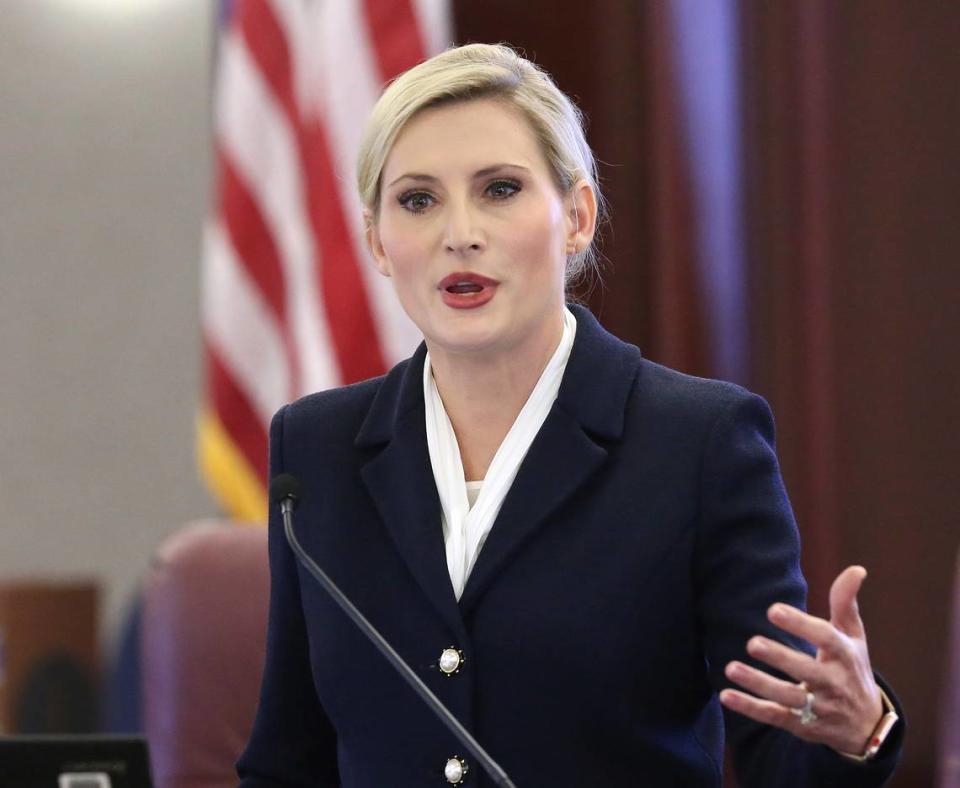
Byrd replaces Laurel Lee, a former assistant U.S. attorney and Hillsborough County circuit court judge, who is considered to be preparing to run for Congressional District 15, which comprises part of Lake County as well as northeastern Hillsborough. As state elections became a political target for Republicans and supporters of former President Donald Trump after the 2020 election, Lee managed to stay out of the fray and stood aside as DeSantis and the Republican-controlled Legislature passed changes to the state’s voting laws claiming they were rooting out voter fraud.
However, because nearly all of those changes have led to lawsuits by civil rights and advocacy groups, which have argued they were unconstitutional, Lee has been a named defendant in many of those lawsuits.

Baffling book rejection: After the Florida Department of Education rejected 54 of 132 submitted math textbooks, the Miami Herald reviewed nearly 6,000 pages of the textbook reviews and found the overwhelming majority of the 125 people assigned to go over the materials found no evidence of the items considered objectionable, such as critical race theory. CRT examines at how racism has been perpetuated through laws and institutions, but the governor and legislators banned it last year believing it was being used to inject anti-racist teaching into K-12 curriculum and make white kids feel bad.
Three of the 125 reviewers did suggest that CRT was hidden in the math textbooks. One of them is part of the conservative group Moms for Liberty, which has worked to get books removed from some school libraries. The other two are from Hillsdale College in Michigan, a Christian school that has become influential in conservative politics. And one of the Hillsdale reviewers is a sophomore studying politics who is listed as the secretary of the Hillsdale College Republicans.
Students will learn about communists: Public school teachers in Florida, however, will soon be required to dedicate at least 45 minutes of instruction on “Victims of Communism Day” to teach students about communist leaders around the world and how people suffered under those regimes. The governor last week signed House Bill 395, which designates Nov. 7 as the state’s official “Victims of Communism Day,” making Florida one of a handful of states to adopt the designation.
WHAT WE’RE WATCHING
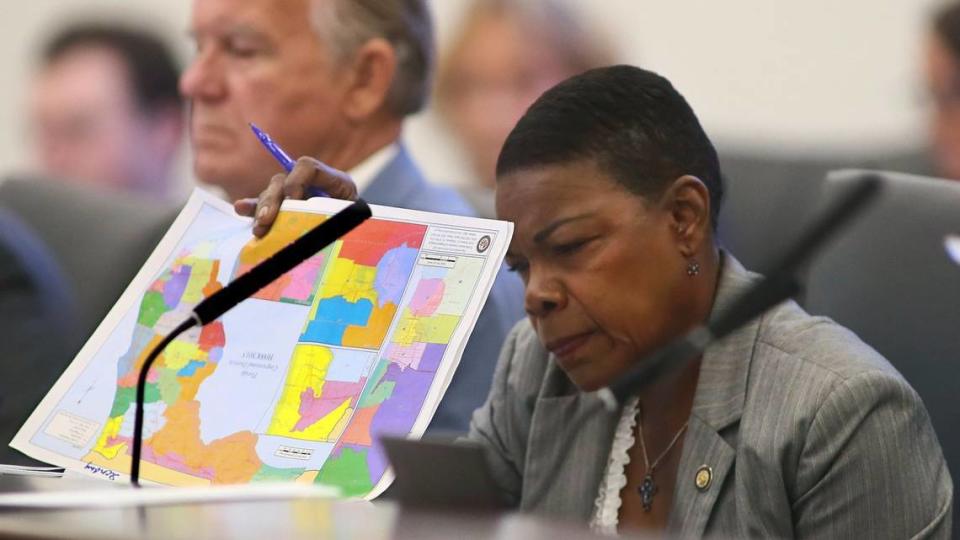
Congressional map in limbo: A Leon County Circuit Court judge on Wednesday threw out the state’s new congressional map drawn by Gov. Ron DeSantis and approved by legislators, ordering a new map drawn by a Harvard expert to be put in place. Judge Layne Smith found DeSantis’ map unconstitutional under the Fair Districts Amendments to the Florida Constitution “because it diminishes the African Americans’ ability to select the representative of their choice.”
But, no surprise, an hour after the judge finalized the temporary injunction on Thursday, the state launched an appeal to the First District Court of Appeal in Tallahassee that put the ruling on hold. The voting rights groups and other plaintiffs quickly asked the court to immediately certify the case to the Florida Supreme Court, suggesting that the battle over a new congressional redistricting plan be put on a fast track because the clock is ticking for candidates to file for congressional office by the June 17 deadline.
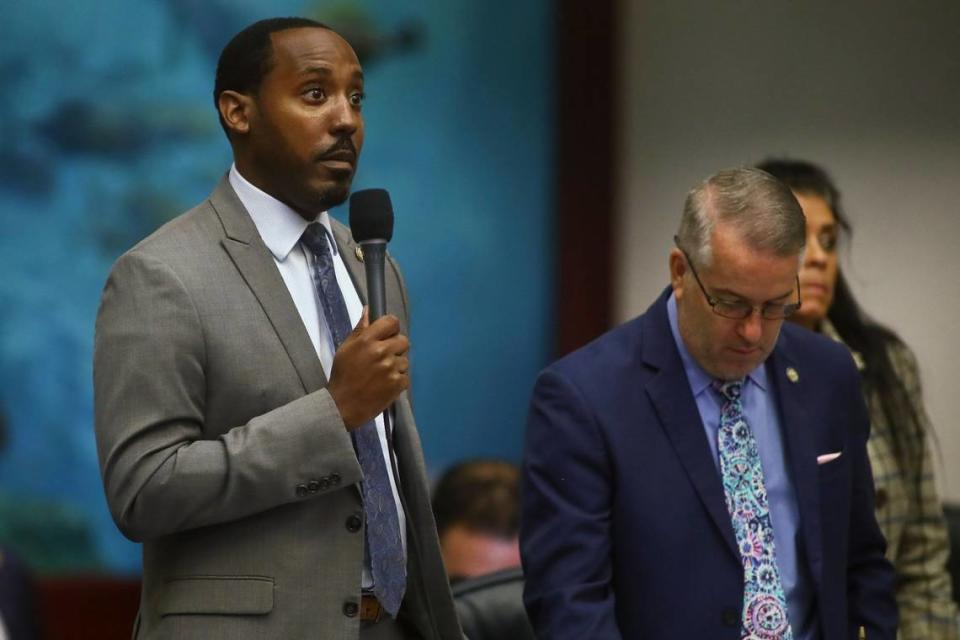
Top Democrat steps down amid allegations: State Rep. Ramon Alexander, D-Tallahassee, said he will not seek reelection in 2022 after allegations emerged last week that he sexually harassed a former employee at Florida A&M University.
The surprise move sent shock waves through Florida Democratic circles since Alexander was slated to be the leader of the House Democratic caucus for the next two years. In a statement posted to Facebook, Alexander, 37, did not address the sexual harassment allegations.
Ouch. Inconvenient timing: Alexander’s announcement came right after the Democrats launched a new $15 million statewide campaign that aims to win back the state from Republican control. The so-called Blue Shift Florida campaign is intended to coordinate state party resources with funding from all major Florida Democratic candidates to invest in voter registration, voter protection and data infrastructure ahead of the 2022 midterms.
Can Dems clear any hurdles? With roughly 100 days until the Aug. 23 primary, the three Democratic candidates for governor are struggling with name identification, raising money and finding a way to drown out the messaging from their Republican rival, DeSantis. Here’s a look at where the Democratic candidates Charlie Crist, Nikki Fried, and Annette Taddeo stand.
Biden blasts Scott tax plan: In a speech intended to assure the American people that his administration is doing all it can to curb inflation, President Joe Biden last week escalated his efforts to point the finger at “ultra-MAGA” Republicans and tie them to a social and economic plan released by U.S. Sen. Rick Scott that would raise taxes on millions of families and potentially end federal programs like Social Security and Medicare. Scott is chairman of the Senate GOP’s campaign arm and he released his 11-point plan in February to ridicule from both sides of the aisle.
Higgins drops and Taddeo demurs: Days after announcing plans to run for a South Florida U.S. House seat, Miami-Dade County Commissioner Eileen Higgins said she’s dropping her bid for Congress to unite behind Miami Sen. Annette Taddeo. But Taddeo, a gubernatorial candidate, insists she isn’t switching races.
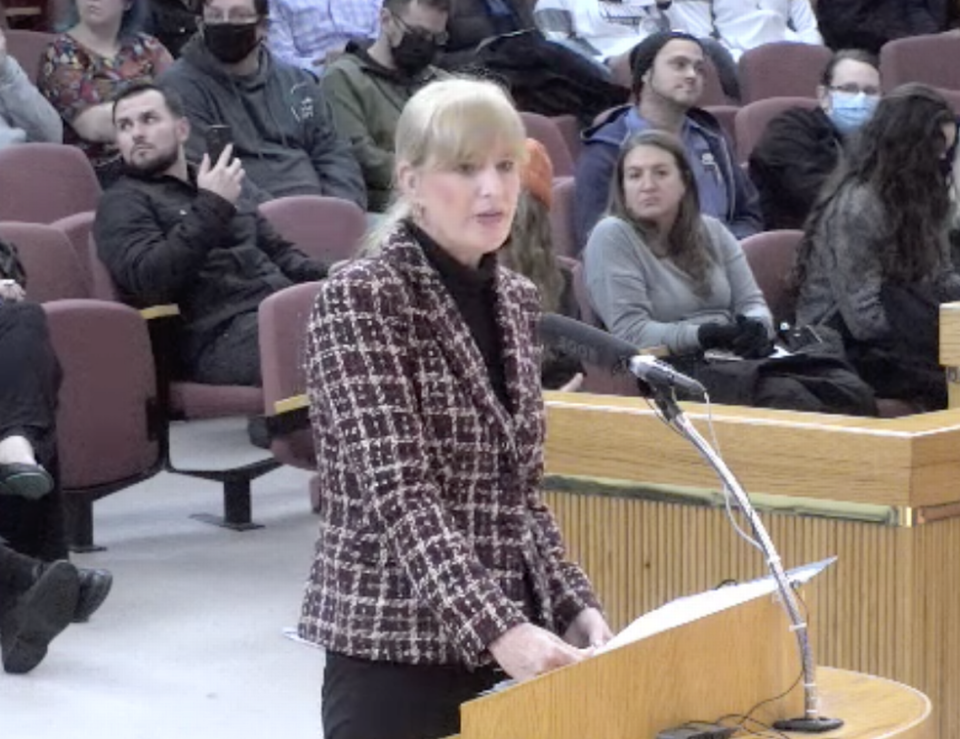
Panhandle backlash over FPL: Conservatives in Florida’s Panhandle were so unhappy with Florida Power & Light’s rate increases, they called for a veto of the bill to limit rooftop solar. The governor responded and vetoed the bill. Now, the folks in Northwest Florida are taking credit, but the outrage over the behavior of the state’s largest utility didn’t stop there. A nationally-renown trial lawyer is running ads against the company. Local officials want to renegotiate the franchise agreement and some community leaders want to discuss establishing a municipal utility to replace the mega energy provider.
Roe v. Wade protests: The leak of a Supreme Court draft opinion to reverse Roe v. Wade continued to make ripples across the state last week. Thousand staged protests on Saturday as part of a nationwide Bans Off Our Bodies movement. Chanting “Abortion rights now!” amid signs and clothing decorated with pins and messages in support of a woman’s right to choose, a couple thousand people demonstrated at Ives Estates Park in North Miami-Dade.
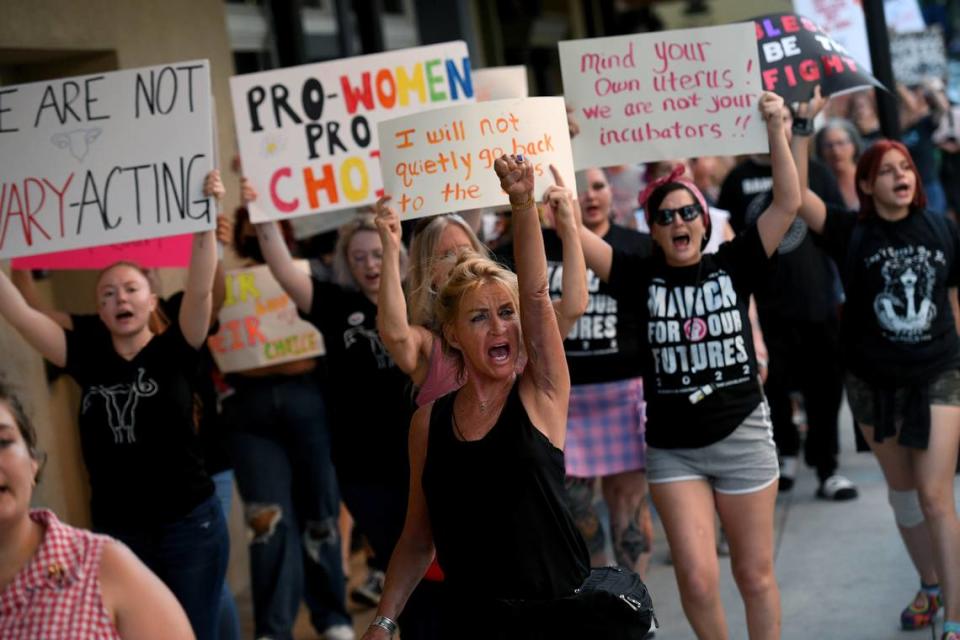
Black men as allies: Four Black, male Florida legislators penned an op-ed, that declared that the lack of access to abortion disproportionately affects Black women and urged Black men to stand behind them in the fight to save Roe v. Wade and reproductive rights. “Too many men see this as a woman’s issue, so we stand on the sidelines rather than being active allies involved in the movement for reproductive freedom,’’ they wrote. “No person can be free if they don’t have the power to control their own body, their own reproductive decisions, and their own destiny.”
Crisis pregnancy resources: If the draft ruling becomes reality, one unanswered question is whether U.S. society will change its approach to women facing crisis pregnancies? The Archdiocese of Miami says it will continue offering resources at its pregnancy health centers in Miami-Dade and Broward counties. The centers provide free pregnancy tests, pregnancy counseling, ultrasound exams, mentoring groups for fathers and classes on topics such as prenatal development, pregnancy, labor, postpartum newborn care and toddler parenting.
The archdioceses also has been providing post-abortion counseling for 30 years, for women feeling guilt and shame. Meanwhile, the American Psychological Association warned that banning abortions or creating more restrictions on the procedure would likely hurt women’s mental health and noted that there’s “no research to indicate that abortion is a cause for subsequent mental health diagnoses.”
Growing affordability crisis: Miami-Dade has become the most expensive place to live in America right now, according to most national housing cost rankings, and it provides more convincing evidence that Florida, and Miami-Dade especially, is in a cost affordability crisis.
Miami-Dade offers tenants rights: Meanwhile, as rents rise and affordable housing remains scarce, Miami-Dade County’s new Tenant’s Bill of Rights took effect on Friday. It gives Miami-Dade tenants new protections, such as the ability to pay for neglected repairs on their rentals out of rent payments, apply for a rental without having to disclose past evictions and expect notification about a new landlord.

Florida’s next climate risk is wildfires: When Hurricane Michael tore through North Florida in 2018 as a Category 5 storm, it left more than 3 million acres of downed trees in its wake. Left untouched for more than three years, the trees became fuel for three simultaneous wildfires that raged through the region in March, prompting the evacuation of a thousand people and destroying more than 30,000 acres of forest before firefighters got it under control.
New research from First Street Foundation suggests that as climate change warms the planet, the risk of wildfires, even in water-soaked Florida, could double by mid-century. That means that 12% all property in Florida could be at risk from wildfires, with many parts of the state as high a risk as many parts of California.
Forecasters are preparing early for hurricanes: As every Floridian knows, June 1 is the official start of the Atlantic hurricane season but at the National Hurricane Center in Miami, the official start really began on Sunday.
It’s the second straight year that forecasters have started sending out the tropical weather outlook two weeks ahead of the official start of the six-month season. The reason is simple: A named storm has formed before June for the last seven years.
Two steps forward, one step back: A troubling new paper from NOAA scientist Hiroyuki Murakami suggests that as consumers and manufactuers in North Amercia decreased air pollution over the last 40 years, the cleaner air may have had an unintended effect — more hurricanes.

Will candidates sour on sugar? Florida’s largest sugar growers have given more than $6 million in campaign contributions but clean water advocates are asking candidates to sour on sugar money. VoteWater, a Florida-based advocacy organization that says its mission is to “fight political corruption and defend the public’s right to clean water,” on Wednesday launched the No Big Sugar Campaign, an open letter urging the public to support candidates who reject political contributions from the industry.
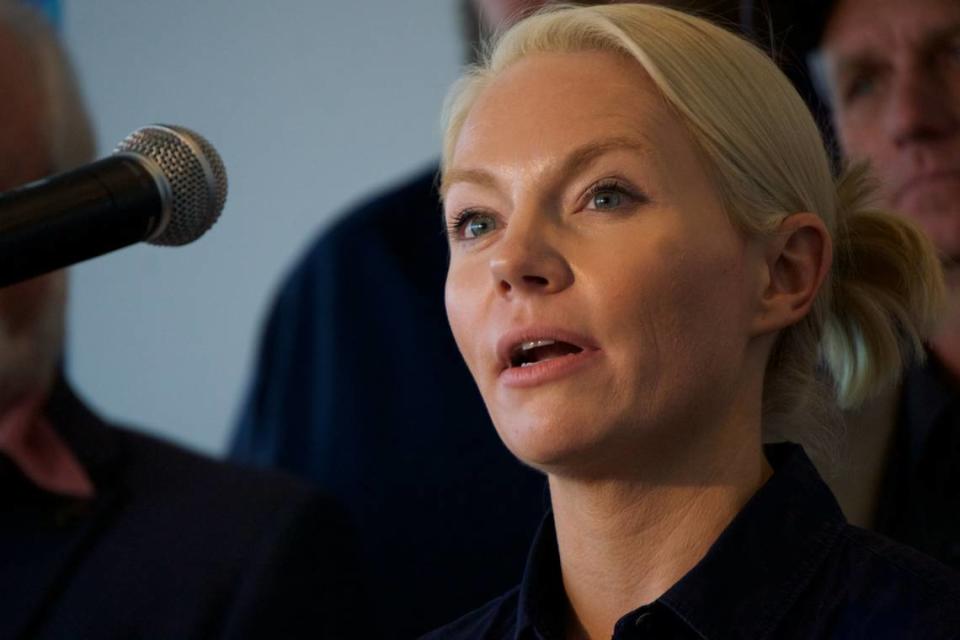
Upton is new CEO of Everglades Trust: After a legislative session in which they were blindsided by a sugar industry maneuver to reverse their progress on restoring water flow to the Everglades, the leaders of the Everglades Trust say the organization is turning a corner. The political arm of the nonprofit Everglades Foundation announced that effective May 16 its new CEO will be Anna Upton and it will launch a restructuring, beginning with moving its headquarters to Tallahassee.
Thank you: Miami Herald Capitol Bureau Chief Mary Ellen Klas curates the Politics and Policy in the Sunshine State newsletter. We appreciate our readers and if you have any ideas or suggestions, please drop me a note at meklas@miamiherald.com.
Please subscribe! We are offering a special offer for you: Unlimited digital access of just $1.99 a month for newsletter readers. Please check it out!
Know someone who’d like to get this free newsletter? Send this to a friend to receive it weekly.

 Yahoo Movies
Yahoo Movies 